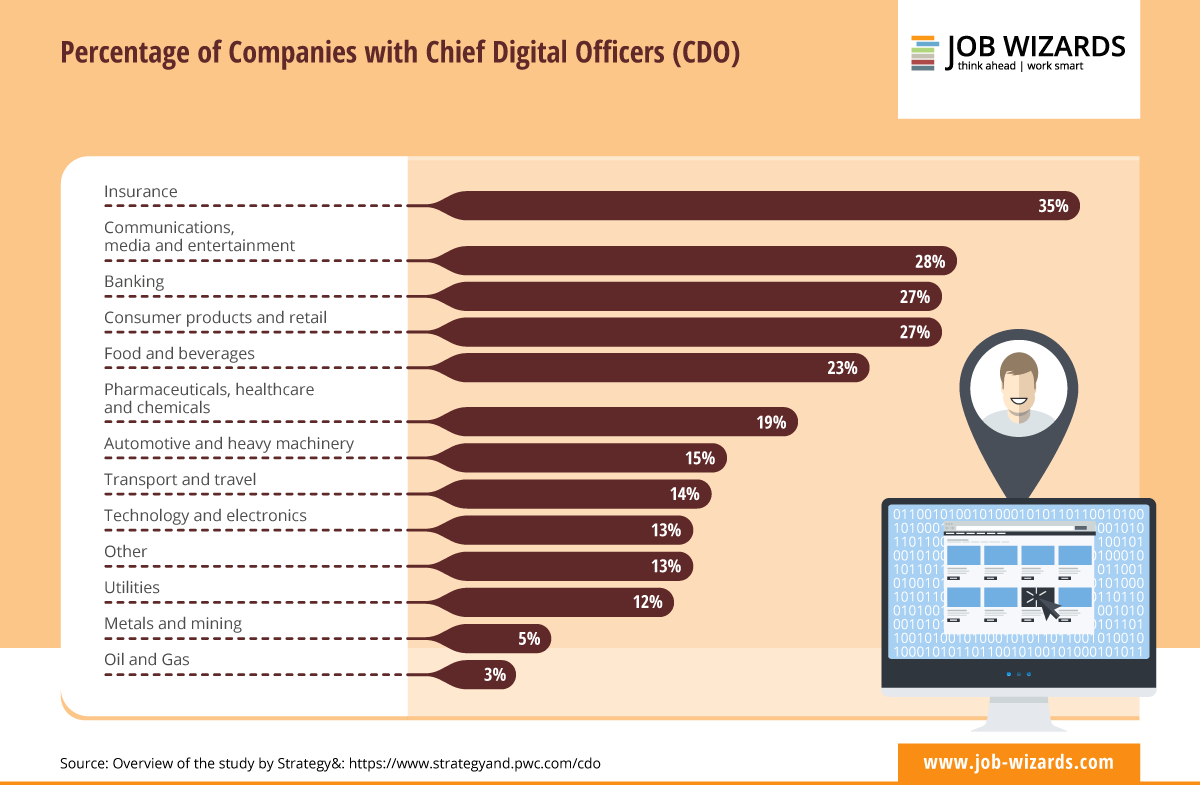Chief Digital Officer, Chief Technology Officer or even Director of Digital Operations: there are differences in the choice of title. But the trend is very clear: more and more companies are adding top-level managers specifically to take care of the implementation of the digital transformation. A new study by Strategy&, the strategy consultants from PricewaterhouseCoopers, confirms this theory – and flags up an impressive development: within just one year, the number of top companies with their own CDO has risen from 6% to 19%.
For a centralised digital strategy
The study considered not just any companies, but the 2,500 biggest worldwide. The fact that the number of new digital bosses in these corporations is growing so fast shows one thing especially clearly: companies have understood how important a consistent and centralised digital strategy is, because, as the publishers of the study emphasise, individual departments in many major companies have already taken big and brave steps towards digitisation. However, what is often missing, according to the study, is a centralised position to coordinate the entire cultural transformation for the good of the company. After all, digitisation is about much more than just the introduction of new technologies or implementation of individual measures.
In large companies in particular, the focus is often on political and financial issues that cannot be dealt with at a departmental level.
European companies are leading the way
When it comes to the global distribution of the new digital managers, the study holds no surprises: it is particularly companies in Europe, North America and the Middle East that are appointing CDOs. The gender distribution is even clearer – with a sizeable male proportion of 84%. However, a clear change compared to the previous year’s study can be seen in the sector distribution: while consumer-facing industries, i.e. companies in media and communications, food and beverages, and transportation, led the statistics in 2015, the insurance industry is now the clear leader – 35% of the companies have people responsible for digitisation in their management.
A good approach – that must be continued
The study by Strategy& makes clear: lots of the biggest companies have recognised how significant the digital transformation is. But not only that – many have also understood the importance of consistent, centralised management of the transformation. An increase in digital bosses from 6% to 19% within just one year can be described as a strong trend, but you would not have to be a pessimist to interpret the statistics differently: the position of CDO is still empty in more than three-quarters of the big companies worldwide. In those cases, digitisation is either coordinated elsewhere or considered in small measures implemented by individual company departments. The hope is, therefore, that the trend will continue, because – whatever this new management position is called – only consistent digitisation leads to the cultural transformation required to stay ahead in the digital age.




